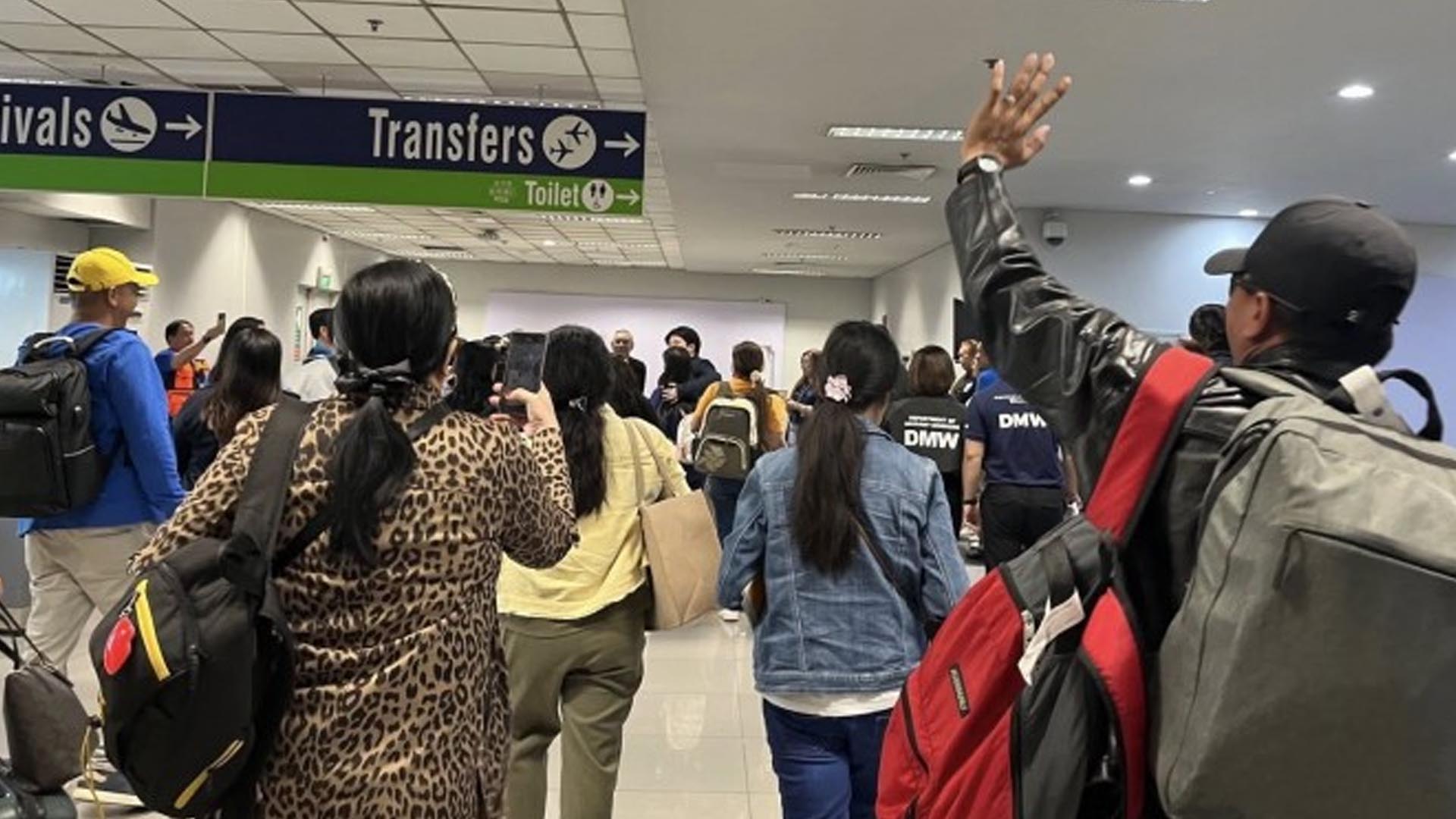The Department of Social Welfare and Development (DSWD) is reaffirming its commitment to support repatriated overseas Filipino workers (OFWs), ensuring that no one is left behind from the moment they land at the airport up to their reintegration in their communities.
“Bilang ahensya na nangangalaga sa kapakanan ng mga mahihirap at bulnerableng sektor, kabilang na ang mga OFWs na pabalik sa Pilipinas, ang DSWD ay nagbibigay ng iba’t ibang serbisyo base sa kanilang kalagayan o pangangailangan (As the agency that looks after the welfare of the poor and vulnerable sectors, including repatriated OFWs, the DSWD provides various services based on their needs),” Assistant Secretary Irene Dumlao said in a statement on Tuesday.
Upon arrival at the airport, repatriated OFWs are welcomed by DSWD social workers in coordination with the Department of Migrant Workers (DMW), the Department of Foreign Affairs (DFA), and the Overseas Workers Welfare Administration (OWWA), and other government agencies.
Each OFW undergoes an initial assessment to determine their immediate needs and the appropriate assistance that may be extended to them.
According to Dumlao, the DSWD may provide financial support, including transportation assistance to help OFWs return to their provinces, and medical aid for those with health conditions.
Under its Sustainable Livelihood Program (SLP), the DSWD further extends assistance to OFWs and their families who want to start anew, either by setting up a small business or facilitating employment.
To guarantee continuous support, the DSWD refers cases to its regional field offices and the local government units (LGUs) for case management and progress monitoring.
“This coordination allows repatriated OFWs to access not only national programs but also localized support systems for long-term reintegration,” the DSWD spokesperson said.
For OFWs who experienced trauma abroad, the department also offers psychosocial services through the Wireless Mental Health and Psychosocial Support (WiSupport) program.
This initiative is currently accessible in OFW Service Caravans but it is being expanded to ensure overseas Filipinos can readily access mental health support wherever they may be in the world.
“These programs are designed not just to provide emergency relief, but to help our repatriated OFWs rebuild their lives and become productive members of their communities,” Dumlao said. (PNA)






